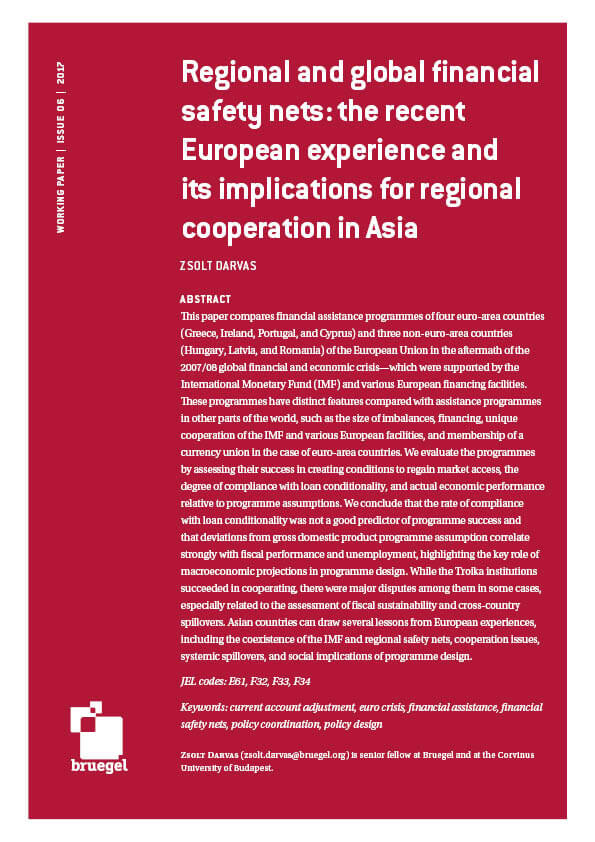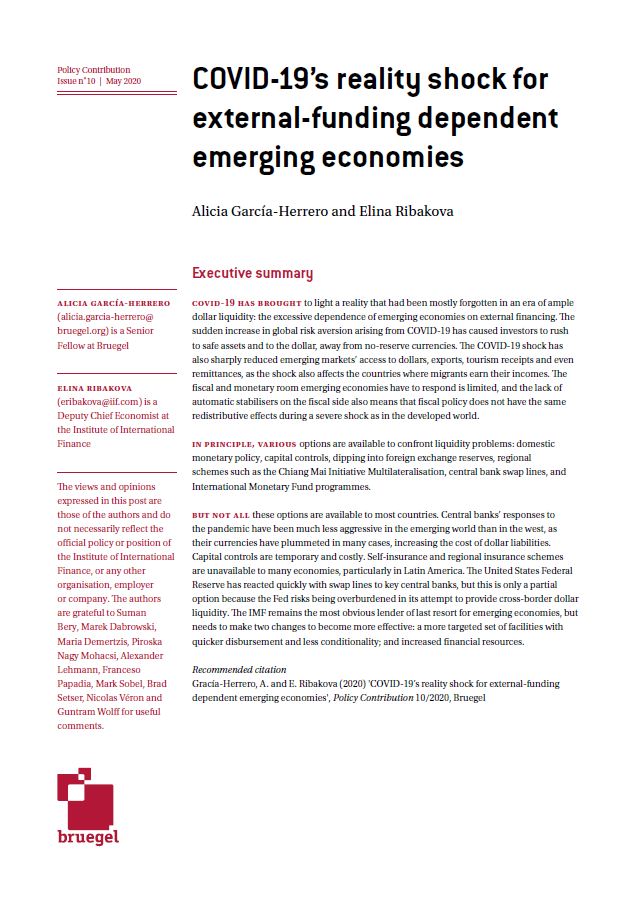Working Paper
Regional and global financial safety nets: the recent European experience and its implications for regional cooperation in Asia
Comparing and evaluating financial assistance programmes of four euro-area countries (Greece, Ireland, Portugal, and Cyprus) and three non-euro-area countries (Hungary, Latvia, and Romania) of the European Union in the aftermath of the 2007/08 global financial and economic crisis. Asian countries can draw several lessons from European experiences.
This paper compares financial assistance programmes of four euro-area countries (Greece, Ireland, Portugal, and Cyprus) and three non-euro-area countries (Hungary, Latvia, and Romania) of the European Union in the aftermath of the 2007/08 global financial and economic crisis—which were supported by the International Monetary Fund (IMF) and various European financing facilities. These programmes have distinct features compared with assistance programmes in other parts of the world, such as the size of imbalances, financing, unique cooperation of the IMF and various European facilities, and membership of a currency union in the case of euro-area countries. We evaluate the programmes by assessing their success in creating conditions to regain market access, the degree of compliance with loan conditionality, and actual economic performance relative to programme assumptions.
We conclude that the rate of compliance with loan conditionality was not a good predictor of programme success and that deviations from gross domestic product programme assumption correlate strongly with fiscal performance and unemployment, highlighting the key role of macroeconomic projections in programme design. While the Troika institutions succeeded in cooperating, there were major disputes among them in some cases, especially related to the assessment of fiscal sustainability and cross-country spillovers. Asian countries can draw several lessons from European experiences, including the coexistence of the IMF and regional safety nets, cooperation issues, systemic spillovers, and social implications of programme design.













